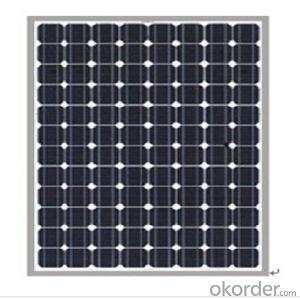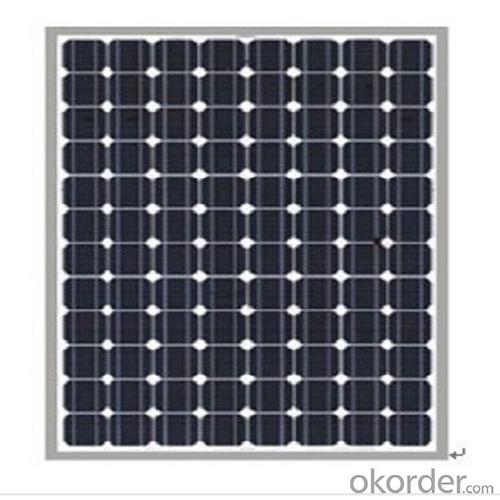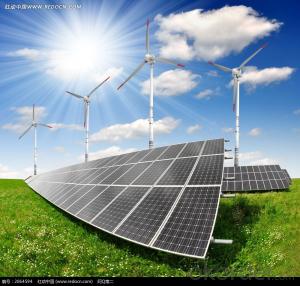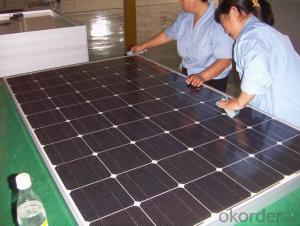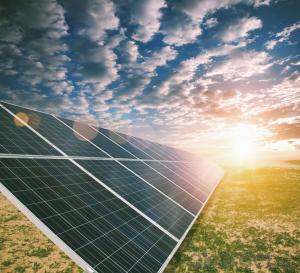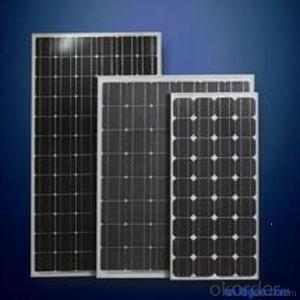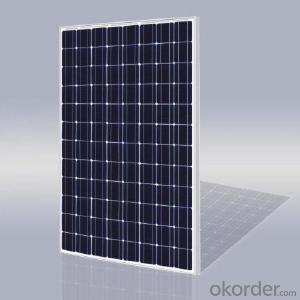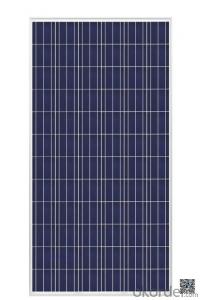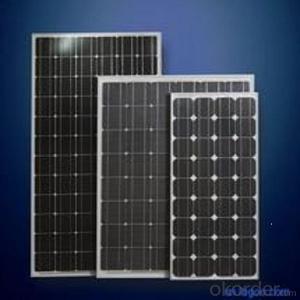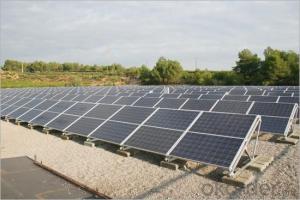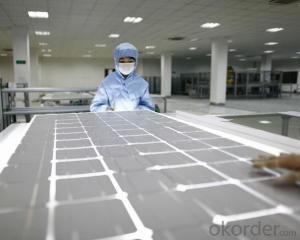Epcot Solar Panels - High Quality 260W Solar Panel with Full Certificate
- Loading Port:
- Shanghai
- Payment Terms:
- TT OR LC
- Min Order Qty:
- 2600 watt
- Supply Capability:
- 26000 watt/month
OKorder Service Pledge
OKorder Financial Service
You Might Also Like
Specification
We are a high-tech group wich specializes in solar products design,research, manufacture, sales,solar projects design and installation.
Our national sales service covers seven parts, including northeast, north, east, middle, south, northwest and southwest, international sales covers five continents and over forty countries, including Germany, Italy, Spain, France, America and Brazil etc.
We now provide Polycrystalline Silicon Solar Module;Thin Film Solar Module;Monocrystalline Silicon Solar Module
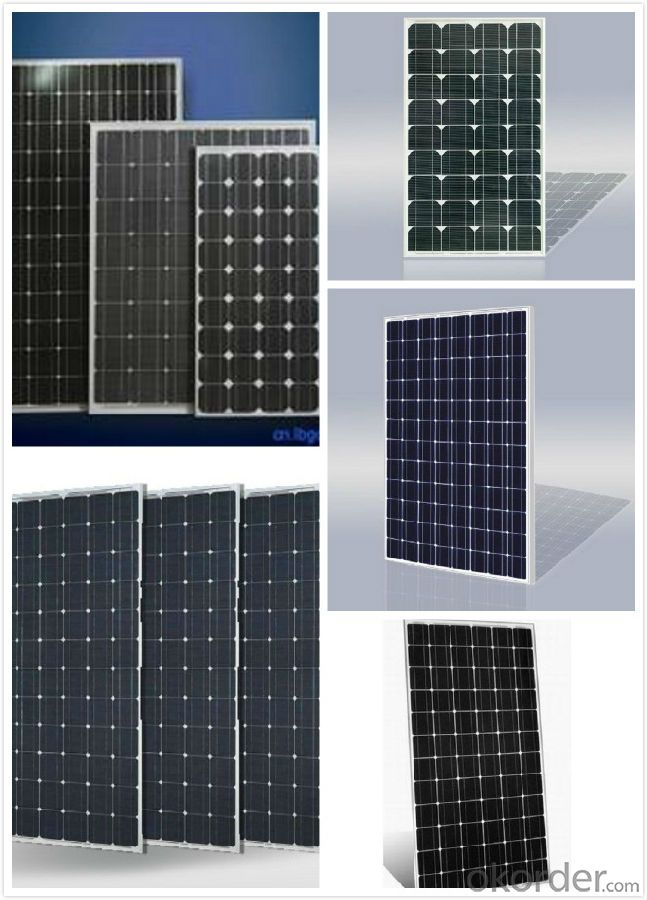
INTRODUCTION
This installation Manual contains essential information for the electrical and mechanical installation that your must know before installing CUSTOMER PV modules. This also contains safety information you need to be familiar with .All the information described in this manual are the intellectual property of CNBM and based on the technologies and experiences that have been acquired and accumulated in the long history of CUSTOMER. This document does not constitute a warranty, expressed or implied.
CUSTOMER does not assume responsibility and expressly disclaims liability for loss, damage, or expense arising out of in anyway connected with installation, operation, use or maintenance of the PV modules. No responsibility is assumed by CUSTOMER for any infringement of patents or other rights of third parties that may result from use of PV module.
CUSTOMER reserves the right to make changes to the product, specifications or installation manual without prior notice.
Solar panel working process
In addition to being the ultimate source of all life on earth, the sun is an infinitely renewable, completely pollution-free source of electricity. Instead of burning fossil fuels dug up from the ground in a big power plant – a very 19th century, industrial age approach, when you think about it – solar panels convert sunlight directly into electricity, with no harmful emissions.
The basic unit of a solar panel is a solar cell, which usually consists of one or two layers of silicon-based semiconductor wafers. When struck by the photons in sunlight, the solar cell generates an electrical charge due to the "photovoltaic effect" – which is a pretty good name, since it produces voltage from photons. The flow of these electrons moves in a steady electrical current from one side of the cell to the other.
Dozens of these PV cells are packaged together into solar modules, which in turn are packaged into solar panels that are mounted on a rooftop and arranged to maximize their hours of exposure to direct sunlight. Because the electricity generated by all those solar cells is direct current (DC), it is then sent to an inverter that transforms the power into the same alternating current (AC) used by the appliances in your home and the local utility electricity distribution grid. Increasingly, these inverters are getting "smart," providing data monitoring for solar installation performance and other grid integration services.
FAQ
We have organized several common questions for our clients,may help you sincerely:
③Can you provide the peripheral products of the solar panels, such as the battery, controller, and inverter? If so, can you tell me how do they match each other?
Yes, we can, we have two companies for solar region, one is CNBM International, the other is CNBM engineering Co.
We can provide you not only the solar module but also the off grid solar system, we can also provide you service with on grid plant.
④What is your warranty system?
Our product performance guarantees for 25 years
• 12 years guarantee for workmanship
• Timeliness of delivery
• Quality Products certified (TÜV, UL, CE, ISO)
⑤How do you pack your products?
We have rich experience on how to pack the panels to make sure the safety on shipment when it arrives at the destination.
- Q: I need to find a way to clean solar panels that automated, at best;A way beside using a large 'squeegee'
- Hire Tinkerbell, Disney hasn't had much for her to do lately.
- Q: I want to buy a solar panel to charge deep cycle batteries and charge electronics off the DCB. I don't know how to wire everything up though or what materials ill need. Inverter? Gauge of the wire? Ampmeter?
- It does not matter if you father is a electrician he must be a fully qualified solar installer or you will not receive any money from the government. You need more than just solar panels you need regulators, grid interaction devices and array controller. 5KW installation is large and will cost around $5000 for the panels then around 5000 for controllers and equipment needed and then there are the basic materials such as rails, junctions, cables etc Total cost is approx $5,000
- Q: Can solar panels be installed on a rented property?
- Yes, solar panels can be installed on a rented property. However, it is important to consult with the landlord and review the lease agreement to ensure that the installation is allowed. In some cases, the landlord may require written permission or may be responsible for the installation process. Additionally, it is recommended to discuss the potential benefits and cost savings of installing solar panels with the landlord to determine if it is a viable option for both parties.
- Q: How do solar panels affect the property's long-term financial viability?
- Solar panels can positively impact a property's long-term financial viability by reducing or eliminating monthly electricity bills, providing potential revenue through excess energy production, increasing property value, and potentially attracting tax incentives or subsidies.
- Q: Can solar panels be used to power a music festival?
- Yes, solar panels can be used to power a music festival. Solar panels can generate electricity from sunlight, which can then be used to power various electrical components such as sound systems, lighting, and other equipment required for the festival. By harnessing solar energy, music festivals can reduce their reliance on traditional power sources and contribute to a more sustainable and eco-friendly event.
- Q: i want to charge my mytouch 3g with solar panel(s) it has a 500mah 3.7v 4.4wh batterieswhat do i need to charge it can i use RadioShack 0.5W Solar Panel 4.5V or RadioShack? W Solar Panel 4.5V
- see u have to make ur own ckt for this ur solar panel generate DC if u want to charge ur phine then its convenient way to harge with ur charger for this do this search for net to convert DC-AC convertor since ur charger work on AC so when ur solar panel generate DC it convert into AC that will charge ur phone in ckt u need this thing filter and amp ie the DC voltage come from solar panel 2 DC to AC convertor 3 AMP for AC 4 filter for AC and u are done....... fine ckt from google.....
- Q: What is a good sight that I could go to about installing solar panels and all of the considerations of it?
- Go okorder This is the web site for the magazine Homepower. You should probably get a copy of the magazine and have a look (there is a Free Sample Issue botton on the site). It contains articles about real people and their solar collectors. It usually details what kind of system they have and provides an illustration of the different parts. These articles and illustrations are very helpful to people who are new to the topic. They also have articles on things are far ranging as the national electrical codes for solar electric panels, building your own electric car and solar ovens for cooking. Check the site out and then request a free magazine.
- Q: Can solar panels be used to power swimming pools?
- Yes, solar panels can indeed be used to power swimming pools. Solar panels can generate electricity from sunlight, which can be used to operate pool pumps, heaters, and other equipment, reducing the reliance on traditional electricity sources and saving on energy costs.
- Q: How much per sq inch do they cost? Will i have to worry about them blowing off during hurricane season? If the sun isnt out for a week will my power go out? Will I have to check them every week and check which ones arent working and replace them? Is there anyway for them to be damaged by acid rain or any type of erosion like hail? When do I have to replace them? How do I dispose of old ones (like recycling)? What is smarter and more economical having few big panels or many small ones? I know I have alot of questions but I want a good detailed answer.
- What's your Source (Optional)
- Q: I just connected my 5 Watt 2V solar panel directly to my 300 Watt 2 inverter. It worked for about 2 minutes then it popped (sparks, smoke etc)! What the hell did I do wrong? I thought the solar panel was 2 volts? Can someone with experience with these things help me out?
- . A 5 WATT panel can NOT power a 300 WATT inverter. 2. IF using 2 volts, then you need a 2 volt battery in the circuit as well. Panel charges battery which powers inverter. When the inverter pulls more power than the panel puts out, it gets it from the battery until the voltage drops low enough to shut down the inverter. NOTE: SOME cheap units do NOT have protective circuitry, and when the voltage drops, the current rises and burns them up.
Send your message to us
Epcot Solar Panels - High Quality 260W Solar Panel with Full Certificate
- Loading Port:
- Shanghai
- Payment Terms:
- TT OR LC
- Min Order Qty:
- 2600 watt
- Supply Capability:
- 26000 watt/month
OKorder Service Pledge
OKorder Financial Service
Similar products
Hot products
Hot Searches
Related keywords
